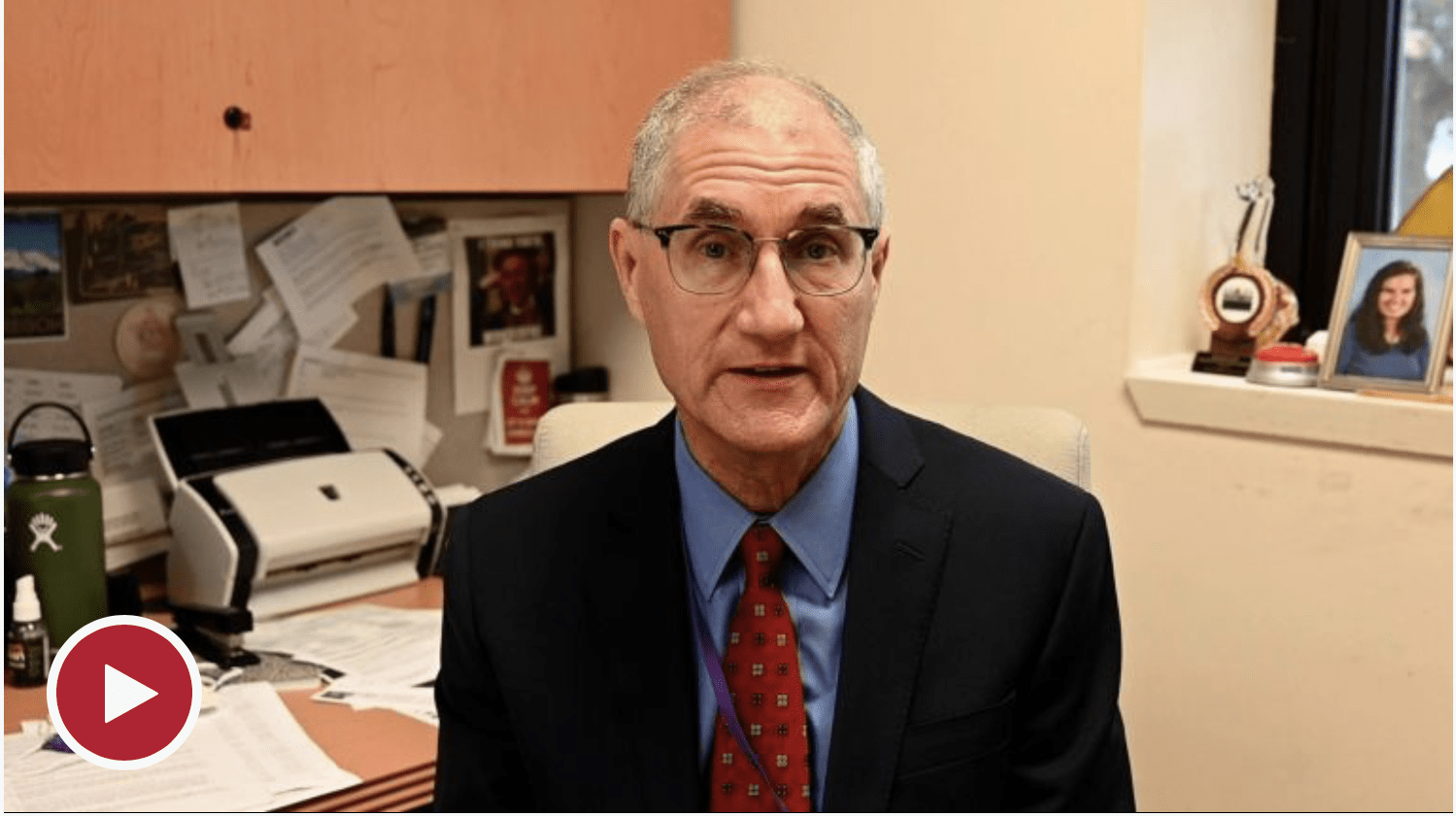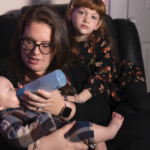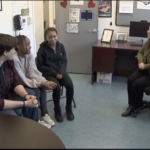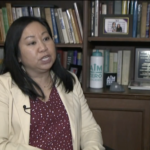By Lisa L. Colangelo and David Reich-Hale, October 4, 2020
Six months after New Yorkers first hunkered down in response to the COVID-19 pandemic, the initial shock may have eased but the stress and anxiety have lingered, according to mental health experts.
The demand for counseling and therapy has increased as Long Islanders wait to see if schools can remain open, brace for flu season or even anticipate a possible second wave of COVID-19.
“There’s this sense that everyone’s waiting for the other shoe to drop,” said Dr. William Sanderson, a psychologist and director of the Anxiety & Depression Clinic at Hofstra University. “We aren’t really sure as we go into fall, are we going to be back where we were in March and April?”
In June 2020 on average, 36.5% of adults in the U.S. reported symptoms of anxiety and depression, according to the U.S. Census Bureau’s Household Pulse Survey. Between January 2019 and June 2019, 11% of adults reported those symptoms.
Health care providers are using a mix of telehealth and in-person visits to facilitate support groups, individual therapy and family therapy for people grappling with fear, anxiety, depression and other challenges stemming from the pandemic.

“A silver lining of the COVID pandemic is that it pushed mental health, full-force, into telehealth.” Dr. Adam Gonzalez, the director of Behavioral Health at Stony Brook Medicine
“A silver lining of the COVID pandemic is that it pushed mental health, full-force, into telehealth,” said Dr. Adam Gonzalez, the director of Behavioral Health at Stony Brook Medicine. “We saw a decrease in cancellations and no shows because of telehealth.”
At NYU Winthrop, demand for mental health services skyrocketed.
The pandemic “has a ripple effect on almost every layer of society,” said Dr. Aaron Pinkhasov, chairman of the Department of Psychiatry at NYU Winthrop Hospital, which has seen a 40% increase in demand for mental health services.
The ferocity of the news cycle has added to the stress, with reports of clusters of new casesemerging in New York and even the president and first lady testing positive in recent days.
No age group has been spared, Pinkhasov said. The lack of social contact has been especially difficult for young children as well as senior citizens. Then there is the pressure on adults caring for their children and aging parents, in many cases while working from home.
“Right now, more than ever, it’s important to expand mental health services and also educate primary care physicians, pediatricians, geriatric doctors and make them aware of the problem,” Pinkhasov said.
‘A chronic malaise’
During the height of the pandemic, the daily toll of infections, hospitalizations and deaths was grim and overwhelming. In April, over 700 New Yorkers died in one day.
But the percentage of new COVID-19 cases has hovered around a relatively low 1% for many weeks. The spread of the virus was slowed by the economic shutdown and individuals wearing masks, sheltering in place and avoiding crowds. The success came at a price.

“It cost us emotionally because a lot of it had to do with withdrawal and reductions in our lifestyle … now people are dealing with more of a chronic malaise.” Dr. William Sanderson, psychologist and director of the Anxiety & Depression Clinic at Hofstra University
“It cost us emotionally because a lot of it had to do with withdrawal and reductions in our lifestyle,” Sanderson said. “The shock is over and now people are dealing with more of a chronic malaise.”
Health care workers on the front lines fought hard to help patients, while dealing with their own stress, said Dr. Curtis Reisinger, a psychologist and director of Northwell’s Employee and Family Assistance Program, which offers confidential counseling services.
“We saw an eightfold increase in the number of people who called us after COVID,” Reisinger said. “We are still up 20% from what normal levels were.”

“We saw an eightfold increase in the number of people who called us after COVID.” Dr. Curtis Reisinger, psychologist and director of Northwell’s Employee and Family Assistance Program
He said that increase has come, in part, because people who might have been uncomfortable asking for assistance, realize how helpful talking to a therapist could be.
“The access is also that much better, because of telehealth,” Reisinger said.
Twenty-year-old Kelly Christ of Manhasset is hoping her struggles with anxiety will help others feel more comfortable to reach out for help. The Fordham University senior wrote blog posts and ran social media for the North Shore Child and Family Guidance Center this summer in an effort to help destigmatize the need to seek treatment.
“It was really good to have a person to talk to,” said Christ. “It made me feel like I wasn’t all alone, because sometimes if you’re talking to family and friends, you feel guilty.”
Others have seen existing mental health conditions aggravated.
John Lindstrom, 48, of Hicksville said his “depression has gone up a great deal” during the crisis.
Lindstrom, diagnosed with bipolar disorder in 2007, said he has only recently started to reconnect with family and friends after feeling severely isolated in his basement apartment during the height of pandemic — too fearful to venture out to a 7-Eleven store.
While he has continued telehealth, he misses the camaraderie at the Central Nassau Guidance and Counseling Services in Hicksville where he spent time several days a week.
Back-to-school worries
The excitement of children returning to school has been replaced with anxiety for parents and children, experts say.
“We are seeing a lot of school-aged children dealing with the aftermath of quarantine isolation and having to get used to a whole new world,” said Dr. Janet Kahn-Scolaro, administrative director of Behavioral Health, at Mount Sinai South Nassau Hospital. “There is a fear of the disease, not just for them but for their parents.”
Kahn-Scolaro said parents should be educated on how to help children process what they are seeing and hearing about the pandemic.
“Little kids hear a whole lot of stuff,” she said. “They never process it the way adults think they do.”
Regina Barros-Rivera, associate executive director at Roslyn Heights-based North Shore Child and Family Guidance Center, a not-for-profit children’s mental health agency, said children are missing beloved rituals such as birthday parties, picnics and the routine of going back and forth from school.
“I find parents who can offer structure can have more success,” she said. “Perhaps it’s a corner of a room that becomes their classroom. Create as much of a routine as possible.”
Winter days ahead
The warm summer months have given quarantine-weary Long Islanders a chance to get outside and safely visit with friends and family. But the long, lazy beach days are giving way to a brisk fall and earlier sunsets.

“As the weather turns colder a lot of us are fearful of what that means in terms of continuing to socialize.” Dr. David Flomenhaft, director of the outpatient Behavioral Health Services at Mercy Medical Center
Click to watch the video
“As the weather turns colder a lot of us are fearful of what that means in terms of continuing to socialize,” said Dr. David Flomenhaft, director of the outpatient Behavioral Health Services at Mercy Medical Center, which has seen a 20% increase in referrals over the last six months.
Flomenhaft said people should maintain routines, get exercise and avoid staying up late watching TV — even if they are working from home.
He is hopeful many can adapt: “We believe that people can grow and improve having survived difficult times.”
With David Olson
SOME PLACES FOR SUPPORT
- North Shore Child & Family Guidance Center, http://northshorechildguidance.org/, 516-626-1971, ext. 338 for English, ext. 364 for Spanish.
- Stony Brook Medicine’s Online Resources and Resiliency tools, stonybrookmedicine.edu/COVID19Support
- NY Project Hope Emotional Support Helpline, https://nyprojecthope.org/, COVID-19 Emotional Support Hotline, 1-844-863-9314.
SOURCE: Newsday Research.














